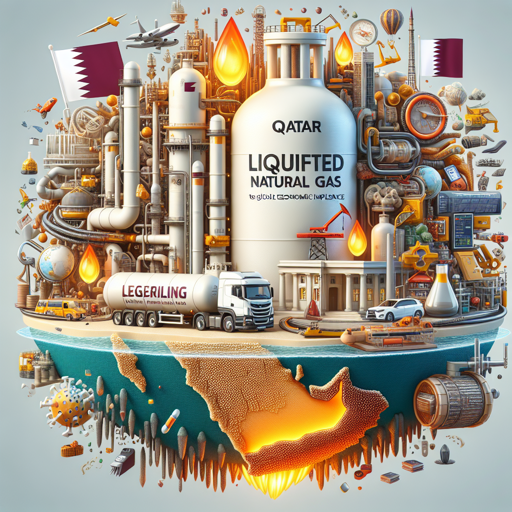Unveiling Qatar's Hidden Treasure: Its LNG Reserves
Discover how Qatar's vast natural gas reserves have become a pillar of its economy and a tool for global influence.

Introduction
Qatar, a small peninsular Arab country, holds a treasure of immense global significance. It’s not gold, nor oil, but it’s the world’s largest natural gas field, the North Field. This article unravels the story of Qatar’s Liquefied Natural Gas (LNG) reserves and how they are a significant determinant of the country’s economic prowess and geopolitical influence.
Qatar’s LNG Reserves: A Geological Marvel
The North Field, also known as the South Pars Field in Iran, is the world’s largest non-associated natural gas field. It is located beneath the Persian Gulf, straddling the maritime border between Qatar and Iran. The field’s total reserves are estimated to be around 1,800 trillion cubic feet, with Qatar’s share being approximately 900 trillion cubic feet. This represents about 13% of the world’s total reserves.
The North Field’s reserves consist primarily of methane, with smaller quantities of ethane, propane, butane, and other hydrocarbons. The field is also rich in condensate, a light oil that is often found with natural gas.
The Economic Influence of Qatar’s LNG
Qatar’s vast gas reserves have transformed its economy. From a modest pearl-fishing nation, Qatar has become one of the world’s wealthiest countries per capita. Its LNG exports have been a significant driver of this economic metamorphosis. The country is the world’s largest LNG exporter, accounting for nearly 30% of global LNG exports.
| Country | LNG Export (BCM) | Global Share (%) |
|---|---|---|
| Qatar | 107.1 | 25.6 |
| Australia | 105 | 25.1 |
| USA | 51.3 | 12.3 |
| Russia | 40.7 | 9.7 |
| Malaysia | 25.3 | 6.0 |
“Countries with the largest LNG exports, 2020. Source: BP Statistical Review of World Energy 2021“
Qatar’s LNG dominance has also provided it with significant geopolitical influence. It has used its LNG exports to forge strategic alliances, secure defense pacts, and gain political leverage.
A Quote to Reflect Upon
In the words of Sheikh Hamad bin Khalifa Al Thani, the former Emir of Qatar, “Our wealth is not money. Our wealth lies in the ambitious people and in a society which strives to ensure a high standard of living for its citizens.”
Conclusion
Qatar’s LNG reserves are a testament to the fascinating ways in which geology can influence a country’s fortunes. These reserves have transformed Qatar’s economic landscape and shaped its geopolitical strategies. As the world moves towards cleaner energy sources, the importance of these reserves is likely to grow, further amplifying Qatar’s global standing.
With the world’s eyes on Qatar as it prepares to host the 2022 FIFA World Cup, the country is a shining example of how a nation can harness its natural resources to fuel its growth and influence in the world.